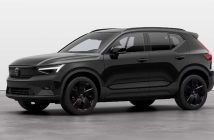+++ COVID fears are throwing yet another monkey wrench in the works of the nascent ride-sharing business, which has been dogged by red tape. Instead long-term car rentals are enjoying a boom, spurred by the limited availability of new cars amid a global microchip shortage. The long-term car rental business takes up about 60 percent of overall industrywide profits. Customers can rent a new car for anywhere between 1 and 5 years, which is much like buying a new car. Consumers have to wait for up to a year to buy new popular models, but renting them long-term only takes a couple of days. The only shortcoming is that this proves more expensive in the long run than buying the car outright, but on the upside rental companies provide full services. All this is bad news for the ride-sharing business. Before the outbreak of the pandemic, it was predicted that ride-sharing would be the future because nobody would ever have to worry about their own car again. Available cars can be located on an app and can simply be opened with a passkey and driven straight away. But the pandemic has made more people hygiene-conscious and cautious about the sharing economy. +++
+++ The soaring price of DIESEL that now outstrips the cost of gasoline is speeding up the demise of diesel cars. Although diesel cars have always been a little more expensive than a comparable gasoline-powered model, the extra cost has been easily absorbed by the lower fuel price. But now even that benefit has disappeared. Sales of diesel cars are declining at a whopping pace right now. The main reason for their decreasing popularity is stringent government regulations around the world of the soot-belching polluters. Automakers have to equip diesel cars with expensive particulate filters that cause fuel efficiency to drop and price tags to go up. Now surging diesel prices are creating another reason to shun them. Global diesel prices surged after inventories in the EU dropped quickly following Russia’s invasion of Ukraine because Russia had met 60 percent of the EU’s needs. Carmakers are speeding up their shift to electric cars and gasoline hybrids while scrapping their diesel lineups. +++
+++ Chinese automotive manufacturer GEELY is acquiring a 34.02 percent stake in Renault Korea Motors, as part of a strategic effort to establish a foothold in the South Korean market for expanding its overseas presence, according to experts. Hangzhou-based Geely Automobile Holdings is China’s largest privately-owned automotive group. With an above-30 percent share in the Korean carmaker, which recently dropped “Samsung” from its name upon termination of its contract with the firm, Geely Auto will be the second largest shareholder. Currently, Renault Group has an 80.1 percent share in Renault Korea Motors. The second largest shareholder was Samsung Card with 19.9 percent, before it announced in December that it was selling off its entire share in the carmaker. In another announcement, the Renault Group said the capital raised from stake sales will be invested in the French automaker’s electric vehicle business. It is reported that Geely will acquire some 45 million newly issued shares from Renault Korea Motors at 264 billion won ($207 million). While Renault Korea Motors said the Chinese carmaker’s latest acquisition comes after an agreement was clinched in January between the 2 firms to work on hybrid models, market insiders speculated that Geely Auto is leveraging the Korean automaker to secure a foothold in the local market in terms of production and possibly sales. The acquisition is widely seen as the second case of a Chinese automaker securing production capacity in South Korea after Shanghai Automotive Industry Corporation acquired a controlling stake in SsangYong Motor in 2004. SAIC ditched its management rights over the SUV maker 5 years later, citing a serious liquidity crisis. The announcement came 3 months after a minor production deal was made between an electric commercial vehicle unit of Geely Auto and a local company. In February, Geely Auto’s electric commercial vehicle manufacturing affiliate Farizon Auto closed a deal with Korea’s auto parts maker Myoung Shin to start producing Xingxiang, its line of electric cargo vans, at the former GM Korea plant in Gunsan, North Jeolla Province. However, Geely’s possible strategy to enter the Korean consumer market with its EVs and hybrids remains uncertain, as market competition is already high for eco-friendly vehicles. Korean auto giants Hyundai and Kia have been dominating the green car market scene along with strong sales by luxury carmakers Mercedez-Benz, BMW and Volkswagen. According to Renault Korea Motors, high efficiency hybrid models will be produced at the Korean carmaker’s sole plant in Busan, with volume production set to begin in 2024. The vehicles will make use of the hybrid technology and Compact Modular Architecture (CMA) platform from Volvo, which is 100 percent owned by Geely Auto. “Geely Auto’s decision to acquire a stake in Renault Korea Motors means that it would actively engage and increase synergy in building new models based on the potential in the Korean market”, said Renault Korea Motors chief executive officer Stephane Deblaise. The firm will seek to strengthen the Renault Group’s “Renaulution” business strategy and successfully launch a jointly developed model, Deblaise added. Besides owning a 100 percent stake in Volvo and a significant share in the Korean unit of the Renault Group, Geely Auto acquired a 9.69 percent stake in Daimler in 2018, which has been renamed to Mercedes-Benz AG earlier this year. Polestar is an EV brand co-developed by Volvo and Geely. +++
+++ On news reports that the HYUNDAI MOTOR GROUP is set to announce a $7 billion investment plan in US, market experts said that the carmaker appears to have done the math: lucrative state incentives, tax benefits, growing demand for electric vehicles and perhaps, proximity of battery supply from its fellow South Korean company SK Innovation. The world’s fifth-largest carmaker will unveil the plan to build an EV plant during US president Joe Biden’s state visit to Seoul from May 20-22, according to news outlets quoting multiple sources. Although Hyundai officials in Seoul remained mum, the plan, if finalized, will be about the carmaker building its first EV-dedicated manufacturing plant. “Hyundai Motor Group announced last May that 50 percent of its manufactured cars would be EVs by 2030. For that, they will continue to invest in making EV manufacturing plants to increase its capacity of EV production rapidly”, said Lee Jae-il, an auto analyst at Eugene Investment. The Hyundai Motor Group has manufacturing lines for EV production in its plants in South Korea, Czech Republic, India and Indonesia, but does not have an EV-dedicated manufacturing plant yet. In addition, Georgia offers large tax incentives, in line with the Biden administration’s EV-friendly policies. Last year, president Joe Biden had proposed offering a $4,500 tax incentive for EVs assembled in the US. “Georgia, for instance, gave a total of $1 billion in state incentives and tax credits for the electric carmaker Rivian Automotive’s new EV assembly plant it plans to build in Georgia. Likewise, the state must have offered about the same amount of incentives to Hyundai Motor Group. The company would want to take that advantage”, added Lee. Not only are EVs being manufactured in Georgia, but the country’s leading battery maker SK Innovation also has its electric vehicle battery plant there. As Georgia becomes an industrial cluster for EVs, other auto part companies will start to gather as well making it easier for the auto giant to get its hands on the supplies of auto parts. “Having the EV value chain in one place, especially supply of batteries, will make it easier for Hyundai to increase the volume of its auto production”, said Lim Eun-young, an analyst at Samsung Securities. “Hyundai is also trying to appeal to the US government, which is pushing foreign companies to invest in the US. That is why it announced that it will first start producing EVs in its plant in Alabama later this year.” Establishing an EV-dedicated manufacturing plant in the US is part of Hyundai’s mid-term plan to invest $7.4 billion in enhancing production and manufacturing facilities in the US. In an interview with Korean reporters earlier in January, Hyundai Motor’s global chief operating officer Jose Munoz had said they are working on developing concrete plans to invest $7.4 billion through 2025, which include plans to produce EVs in the US. +++
+++ Hyundai is expected to stop making its trusty midsize SONATA sedan. First launched in 1985, the Sonata has become the longest surviving model in South Korea and more than 9 million of them have been sold. But Hyundai has no plans to continue producing it amid plans to phase out combustion-engine cars by 2035. It takes between 4 to 6 years to come up with a new version, and Hyundai has rolled out face-lifted Sonatas every 2 to 3 years, so development of the next one due 2025 should already be in full swing. But a source at Hyundai said nothing is happening. Insiders said it is an open secret in the company that the Sonata will be discontinued, and Sonata assembly lines are being converted to produce electric cars. In January, the automaker stopped producing Sonata and Grandeur sedans for a month at its factory in Asan and turned some of the lines over to manufacturing the Ioniq 6. “Hyundai has announced it will manufacture only EVs starting in 2035, so combustion engine cars are on their way out. There is probably no reason to spend W300 billion developing a new version now Sonata sales have slowed”. A facelifted Sonata set to hit showrooms next year will probably be the last. Hyundai has sold 9.17 million Sonatas in Korea and abroad, making it Hyundai’s third-bestselling model after the Avante (14.4 million) and Accent (10.10 million). It also used to be the most exported car in South Korea, but shipments have declined since 2019. Sales of the latest Sonata released in 2019 reached only 440.000 over the last 3 years compared to 1 million or more of previous models. Consumers appear to favor SUVs now, with a whopping 47.3 percent of Hyundai’s sales last year being SUVs. A staffer said, “We can’t rule out an electric Sonata, but we’re prioritizing the development of a compact electric car rather than a less popular midsize vehicle”. +++
+++ Trucks and vans are the bestselling vehicles in SOUTH KOREA right now, as more prestigious passenger cars are being held up by a microchip shortage. The 2 bestselling automobiles in the first 4 months of this year were Hyundai’s Porter truck with 26.569 and Kia’s Bongo van with 21.760. The Porter had been the top seller several times, but this is the first time cars for commercial use have taken the top-2 spots. The biggest reason behind the latest change appears to be the chip shortage, which has been delaying deliveries of popular passenger cars. Sales of Hyundai’s Grandeur, which had been competing for the top spot with the Porter truck, have slowed ahead of a revamp out late this year, while production of the Avante compact, Sorento and Carnival has slowed amid the chip shortage. But the popularity of the 1-ton Porter also stems from an increase in self-employed people and delivery services, while it can also be converted into a camper. In the import market, meanwhile, Mercedes-Benz ranked at the top by selling 7.822 cars, followed by BMW (6.658), Volvo (1.332), Audi (1.051) and Porsche (918). Audi fell from third to fourth, while Volkswagen dropped to 6th place (847). +++
+++ A Seoul court has selected a local consortium led by chemical-to-steel firm KG Group as the preliminary bidder for SSANGYONG ahead of the auction beginning later this month to find a new investor for the carmaker. The new auction comes 2 months after local electric bus maker Edison Motors failed to make a full payment of 304.8 billion won (US$249 million) for the debt-laden SsangYong by the March 25 deadline. SsangYong and its lead manager EY Hanyoung accounting firm accepted the KG-Pavilion PE equity fund consortium as the consortium beat others in terms of acquisition price, fundraising plans, and employment guarantee period, the company said in a statement. “SsangYong will sign a stalking horse deal with the KG consortium early next week and then release a public notice for the new auction to find a new owner”, a company spokesman said over the phone. In the stalking horse bid, the preliminary bidder suggests its price for SsangYong ahead of the auction, and other bidders submit their prices in the auction. If a company submits a price higher than the stalking horse’s price, SsangYong will ask the stalking horse if it can pay the highest bidding price to buy the carmaker. Last month, 4 firms (KG Group, Pavilion PE, EV parts maker EL B&T and underwear company Ssangbangwool) submitted letters of intent to EY Hanyoung. KG and Pavilion PE formed a consortium after submitting LOIs. The KG consortium and Ssangbangwool Group reportedly suggested bidding prices of 900 billion won and 800 billion won, respectively, for SsangYong. The prices are far higher than Edison’s price. KG Group will “thoroughly” prepare for the remaining process to acquire SsangYong, a company spokesman said over the phone. “Regardless of the preliminary bidder selection, we will participate in the upcoming auction”, Ssangbangwool said in a statement. The Seoul Bankruptcy Court extended the deadline for SsangYong to find a new owner and submit a new restructuring plan by 6 months until October 15. SsangYong aims to select a preferred bidder at the end of June, sign a deal in early July, submit its rehabilitation plan to the court in late July and obtain the court’s approval for its restructuring plan in late August. SsangYong has been under court receivership since April 15, 2021, after its Indian parent Mahindra failed to attract an investor amid the Covid-19 pandemic and its worsening financial status. The latest deal’s collapse marks yet another setback for the SUV-focused carmaker. China-based SAIC Motor acquired a 51 percent stake in SsangYong in 2004 but relinquished its control of the carmaker in 2009 in the wake of the global financial crisis. In 2011, Mahindra acquired a 70 percent stake in SsangYong for 523 billion won and now holds a 74.65 percent stake in the carmaker. SsangYong’s lineup consists of the Tivoli, Korando, Rexton and Rexton Sports. On the same day, the Korea Exchange extended by 8 months until December 31 the period for SsangYong to improve its financial status not to be delisted from the country’s main bourse. Previously, the KRX gave SsangYong a one-year improvement period until April 14, 2022, as KPMG Samjong Accounting, the auditor of SsangYong, declined to give its opnion on the carmaker’s financial statements for the year of 2020. KPMG Samsong declined to offer its opinion for its 2021 financial report due to snowballed losses. SsangYong posted net losses for 6 consecutive years through 2021. +++
+++ VOLVO is close to catching up to German automaker Audi, which kept its title as the third top selling foreign car brand in South Korea, data showed Monday. According to Korea Automobile Importers & Distributors Association, Volvo Korea sold a total of 1.332 units in April overtaking Audi Korea which sold 1.051 units the same month. Compared to sales in March, Volvo Korea saw a 1.8 percent on-month sales increase in April while Audi Korea’s sales dropped by 9 percent. In April, Volvo Korea was responsible for 5.77 percent of imported car sales while Audi Korea was responsible for 4.56 percent. In the first 4 months of this year, Audi Korea sold an accumulated 4.702 units, only 10 units more than Volvo Korea which has sold 4.692 units. Volvo Korea has continuously shown a 2-digit growth in annual sales for 10 consecutive years. Last year, the brand sold 15,053 units, a 17.6 percent surge on-year. It recorded 749.7 billion won ($583.83 million) in sales last year, a 20 percent increase on-year. Its operating profit surged 221 percent on-year to 18.8 billion won last year. Volvo’s effort to launch new and diverse plug-in hybrids and all-electric vehicles were reflected in the numbers. In February, Volvo Korea launched its first all-electric SUV Coupe, the C40 Recharge, and all 1.500 units allotted for sales in South Korea this year sold out within 4 days since its launch. Volvo Korea also launched long-range models of its all-electric vehicles XC90, S90 and XC60 Recharge Hybrid. Volvo Korea plans to foster growth through electrification under its global strategy of expanding plug-in hybrid or EV sales to 50 percent of the total by 2025. It plans to be all-electric by 2030. Bestselling imported car brand Mercedes-Benz Korea has retained its place on the throne with 25.964 units sold from January to April this year, accounting for 30.62 percent of imported car sales in South Korea. BMW Korea follows closely behind Mercedes-Benz with 24.701 units sold during the same period, taking 29.13 percent of all imported car sales. +++



